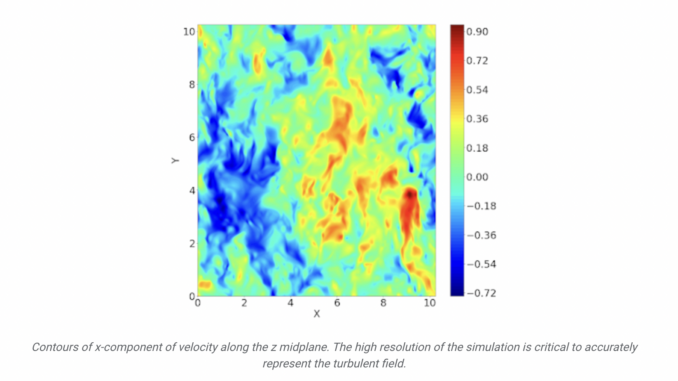
In fluid mechanics, known as computational fluid dynamics (CFD), problems involving fluid flow and heat transfer behavior are examined and solved using numerical techniques and algorithms. It can be used in a wide variety of scientific and industrial domains. Various academic and industrial domains use computational fluid dynamics (CFD). It is applied to the design of efficient wind turbines and power plants in the energy sector, to the mixing and chemical processes in the manufacturing sector, to oceanography and weather forecasting in the environmental sciences, to structural analysis and flood modeling in civil engineering, and the design of energy-efficient buildings in the building industry. It is also applied in aerospace and automotive engineering to enhance aerodynamics and engine performance.
The outstanding advancements in creating computing algorithms, physical model building, and data analytics have made these capabilities possible. In addition, high-performance computing (HPC) systems have dramatically improved availability, speed, and efficiency, enabling high-fidelity flow simulations with increasing resolution and considering complex physical processes.
To better understand these phenomena, the study of turbulence is ubiquitous in environmental and engineering fluid flows. Direct numerical simulation (DNS), which accurately depicts the unstable three-dimensional flow field without any approximations or simplifications, is useful for comprehending these turbulent flows. While appealing, such simulations need much processing power to depict fluid-flow patterns over various geographical scales accurately.
So, to facilitate this issue, the researchers have developed a simulation formulation that can enable the computation of fluid flows with TPUs. The researchers have formulated it to use cutting-edge advancements in TPU hardware design and the TensorFlow software. They emphasized that this framework exhibits efficient scalability to adapt to varying problem sizes, resulting in enhanced runtime performance.
It uses the graph-based TensorFlow as the programming paradigm. This framework’s accuracy and performance are studied numerically and analytically, specifically focusing on the effects of TPU-native single-precision floating point arithmetic. The algorithm and implementation are validated with canonical 2D and 3D Taylor-Green vortex simulations.
Throughout the development of CFD solvers, idealized benchmark problems have frequently been utilized, many of which have been incorporated into this research endeavor. One required benchmark for turbulence analysis is homogenous isotropic turbulence(a canonical and well-studied flow in which the statistical properties, such as kinetic energy, are invariant under translations and rotations of the coordinate axes). The researchers have applied a fine-resolution grid with eight billion points.
The researchers investigated the capability to simulate turbulent flows. To achieve this, simulations were performed for two specific configurations: decaying homogeneous isotropic turbulence and a turbulent planar jet. The researchers found that both simulations exhibit strong statistical agreement with benchmark answers.
The researchers also employed four distinct test scenarios encompassing 2D and 3D Taylor-Green vortex flow, decaying homogeneous isotropic turbulence, and a turbulent planar jet. The simulation results showed that round-off errors did not affect the solutions, indicating a second-order accuracy level.
Check out the Paper and Google AI Article. All Credit For This Research Goes To the Researchers on This Project. Also, don’t forget to join our 30k+ ML SubReddit, 40k+ Facebook Community, Discord Channel, and Email Newsletter, where we share the latest AI research news, cool AI projects, and more.
If you like our work, you will love our newsletter..



Be the first to comment